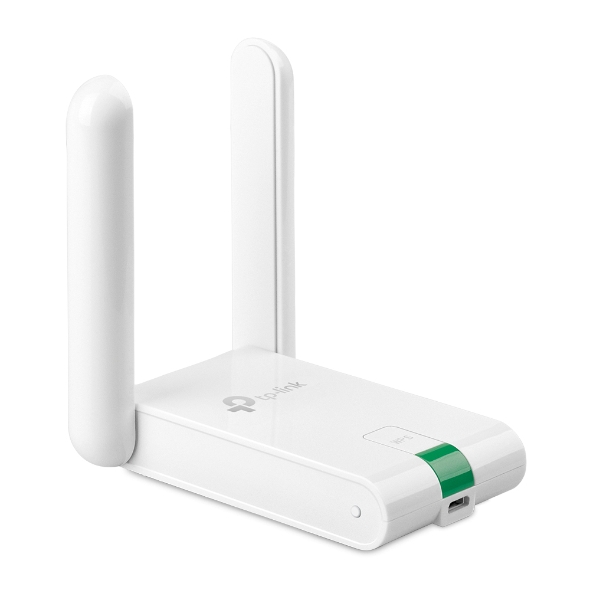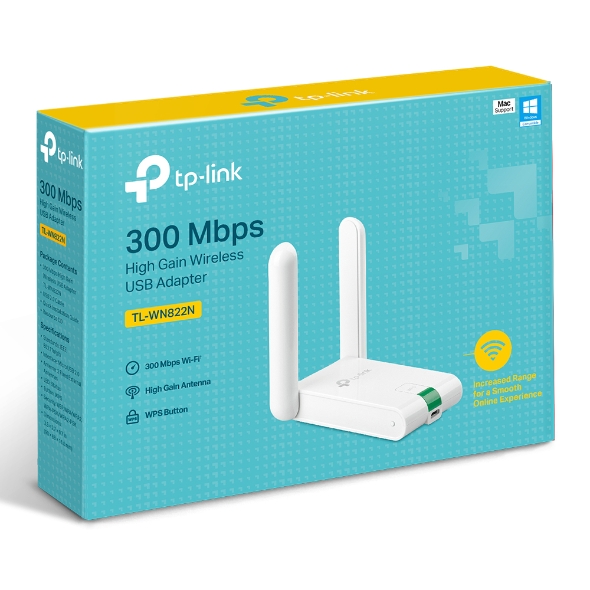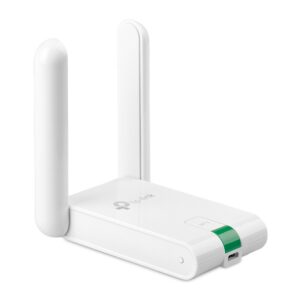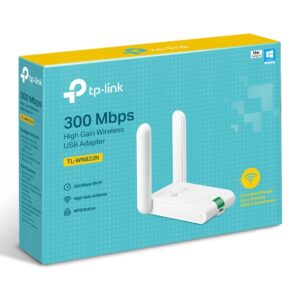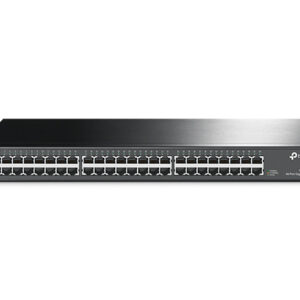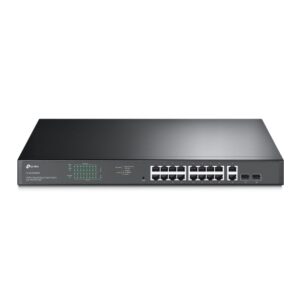| HARDWARE FEATURES | |
|---|---|
| Interface | Micro USB 2.0 |
| Button | WPS Push Button/Software |
| Dimensions ( W x D x H ) | 3.5 x 2.7 x 0.7 in. (90 x 68 x 16.8mm) |
| Antenna Type | Dual Omni Directional |
| Antenna Gain | 3dBi |
| WIRELESS FEATURES | |
|---|---|
| Wireless Standards | IEEE 802.11n, IEEE 802.11g, IEEE 802.11b |
| Frequency | 2.400-2.4835GHz |
| Signal Rate | 11n: Up to 300Mbps(dynamic) 11g: Up to 54Mbps(dynamic) 11b: Up to 11Mbps(dynamic) |
| Reception Sensitivity | 270M: -68dBm@10% PER 130M: -68dBm@10% PER 108M: -68dBm@10% PER 54M: -68dBm@10% PER 11M: -85dBm@8% PER 6M: -88dBm@10% PER 1M: -90dBm@8% PER |
| Transmit Power | <20dBm(EIRP) |
| Wireless Modes | Ad-Hoc / Infrastructure mode |
| Wireless Security | Support 64/128 bit WEP, WPA-PSK/WPA2-PSK |
| Modulation Technology | DBPSK, DQPSK, CCK, OFDM, 16-QAM, 64-QAM |
| Advanced Functions | WMM |
| OTHERS | |
|---|---|
| Certification | CE, FCC, RoHS |
| Package Contents | Wireless Adapter TL-WN822N Resource CD Quick Installation Guide 1.5m USB Cable |
| System Requirements | Windows 11/10/8.1/8/7, Mac OS 10.15 and earlier, Linux |
| Environment | Operating Temperature: 0℃~40℃ (32℉~104℉) Storage Temperature: -40℃~70℃ (-40℉~158℉) Operating Humidity: 10%~90% non-condensing Storage Humidity: 5%~90% non-condensing |
*Maximum wireless signal rates are the physical rates derived from IEEE Standard 802.11 specifications. Actual wireless data throughput and wireless coverage are not guaranteed and will vary as a result of 1) environmental factors, including building materials, physical objects, and obstacles, 2) network conditions, including local interference, volume and density of traffic, product location, network complexity, and network overhead, and 3) AP limitations, including rated performance, location, connection quality, and AP condition.
*To ensure compatibility, you may need to update the adapter’s drivers after an OS update. You can find our latest drivers in the download center at tp-link.com/en/download-center.
Actual network speed may be limited by the rate of the product’s Ethernet WAN or LAN port, the rate supported by the network cable, Internet service provider factors and other environmental conditions.

